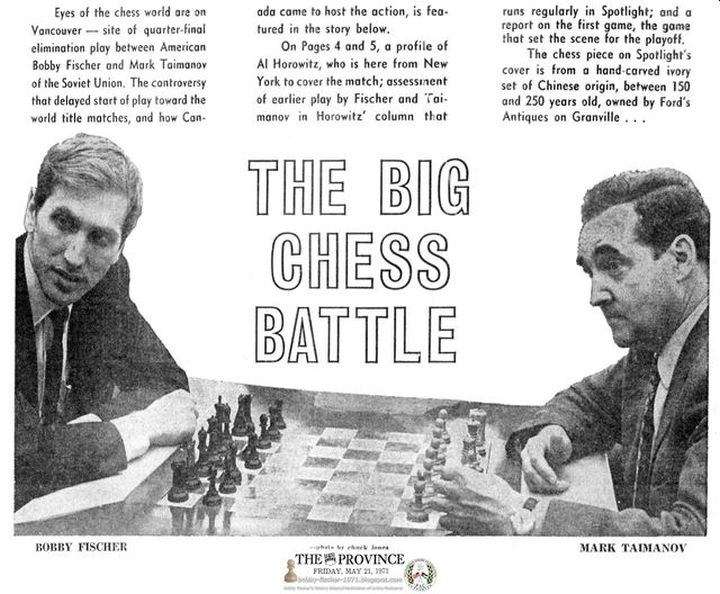About a week ago Karsten Müller invited readers of his latest riddle to take a close at the first game of the 1971 Candidates Match between Bobby Fischer and Mark Taimanov in Vancouver, Canada. The American defeated his opponent from the Soviet Union with "dry" 6-0 score. But matters could have started differently. In the first game it was Taimanov who put on the pressure.
Taimanov played 27.h3, which nobody considered a bad move – until Kasparov pointed out its defect in 2004. Then Lakdawala found 27.Ba6 and subsequently Aagaard, Karolyi, and Timman found further improvements. Timman even concluded that "White has a winning advantage; Black's compensation for the exchange is absolutely insufficient."
Grandmaster Jonas Lampert agrees with our finding that 27.Ba6 does not give White a winning position. At first, the computer does think that White's advantage of the exchange is decisive. But deeper analysis shows that eventually, Black can hold a pawn-down rook ending.
After 27...Rf8 28 Ba6 Rb6 Taimanov continued to press for the win and chose 29.Rc7 instead of the interesting alternative 29.Bb5! White played the obvious check 31.Bxh6 (which should have lost), but new analysis has found Taimanov could have played 31.Nxf5+ and held.
As Kasparov pointed out, after 29.Rc7 Qa4 30.Rg7+ 31.Bxh6 Fischer should have played the winning 31...Kh7! Instead, 31...Kf7 allowed Taimanov to again dream of victory.
Taimanov played 36.Nd4 and called it "capitulation." Instead, 36.g4! would have led to positions highly favorable for White. In fact, in one variation, Black has to play a temporary rook sacrifice to reach a drawn ending in which he is a full bishop down!
Fischer's 37...Qb4 completely turns the tables. As Taimanov says, "A stunning manoeuvre, abruptly changing the character of the battle."
Here is the game with full analysis by Charles Sullivan [click on the notation to get a replay board, and on the fan button to get engine assistance]:

.jpeg)























